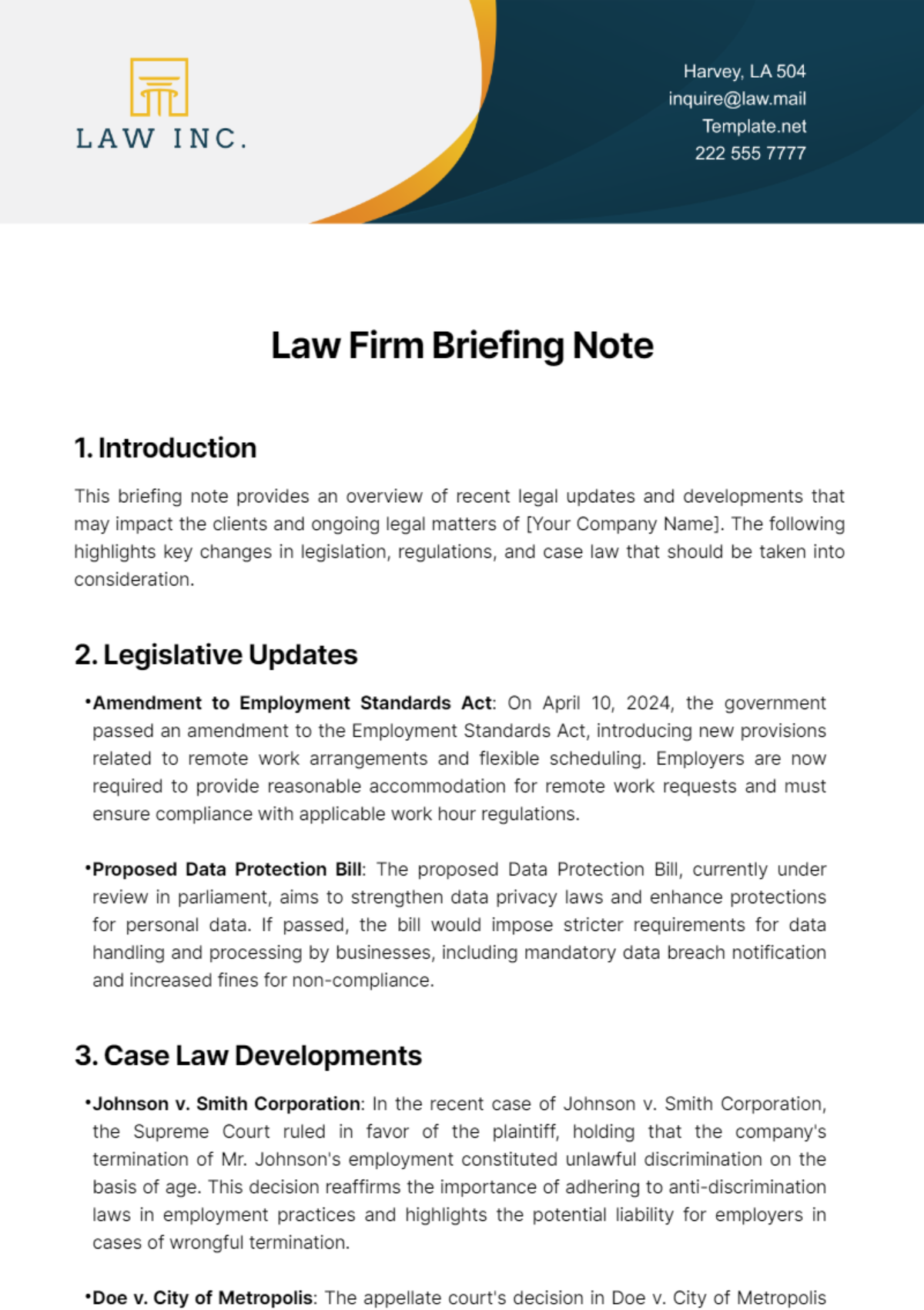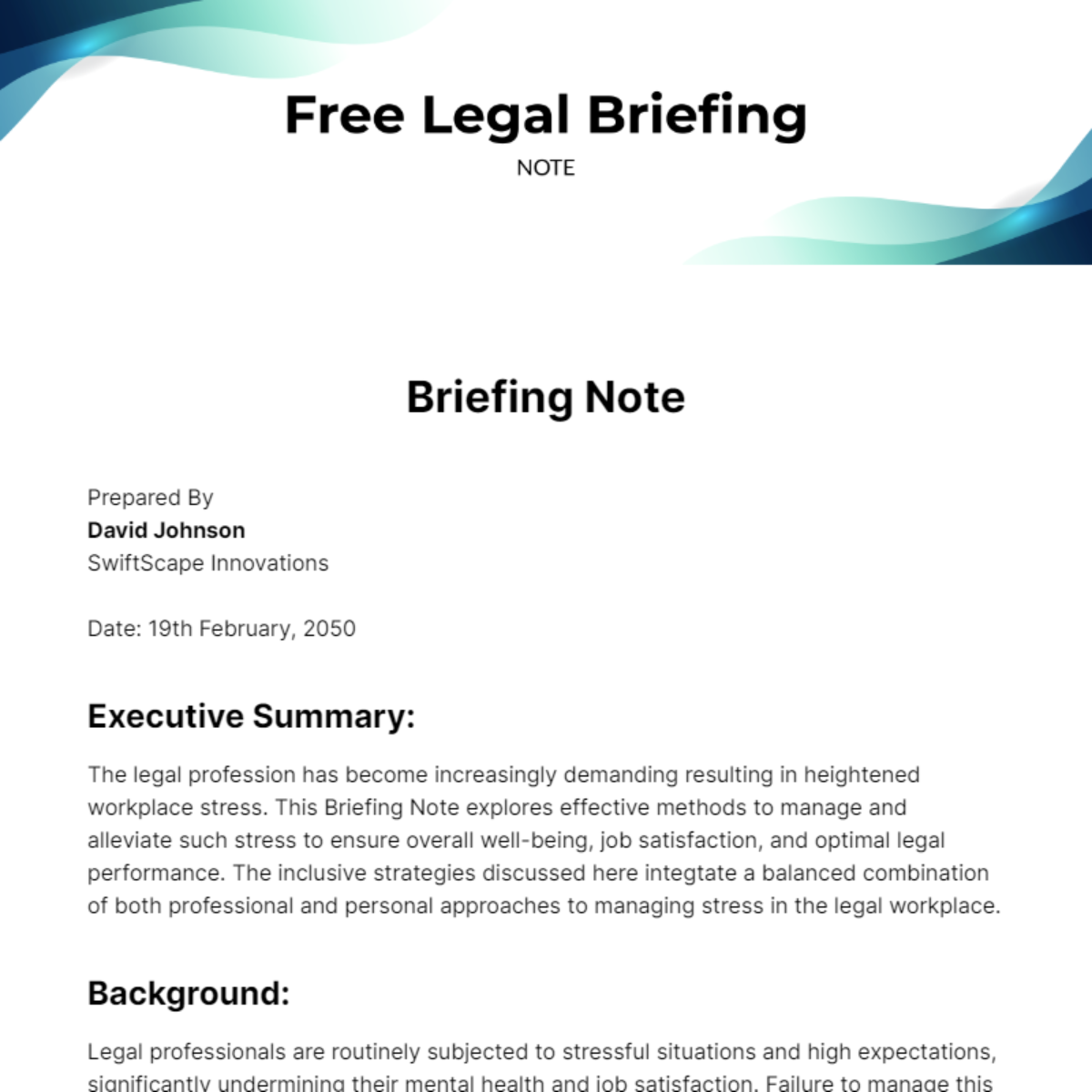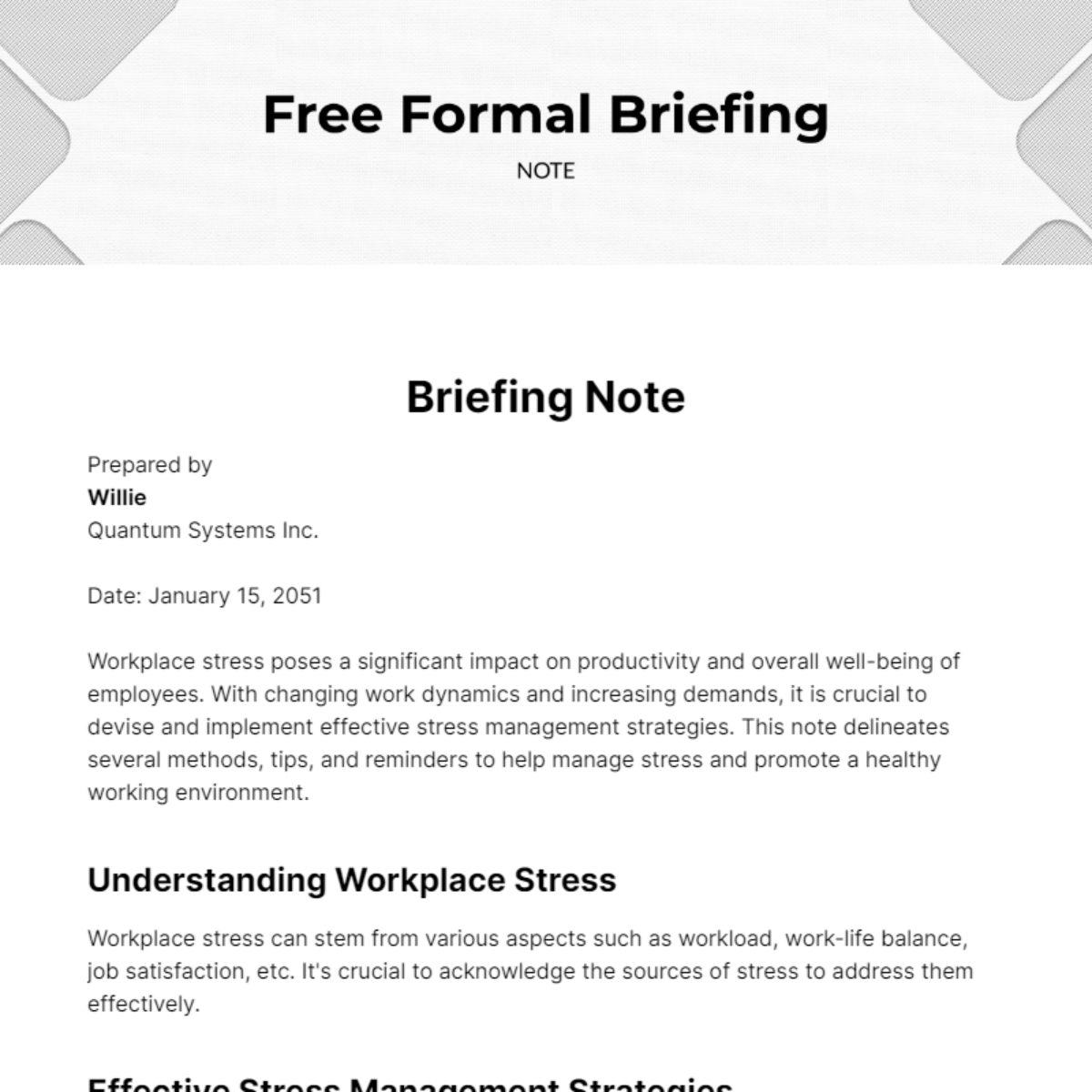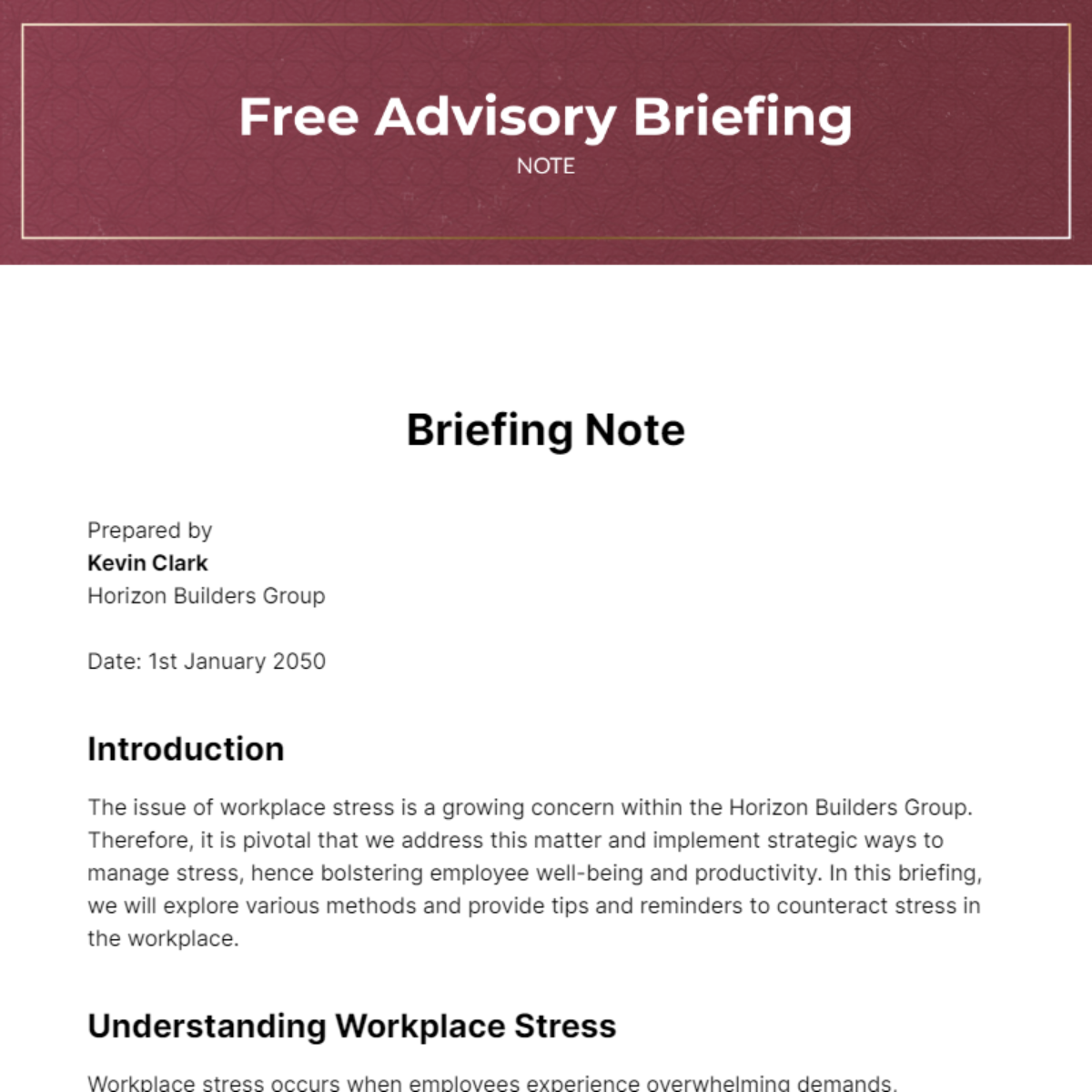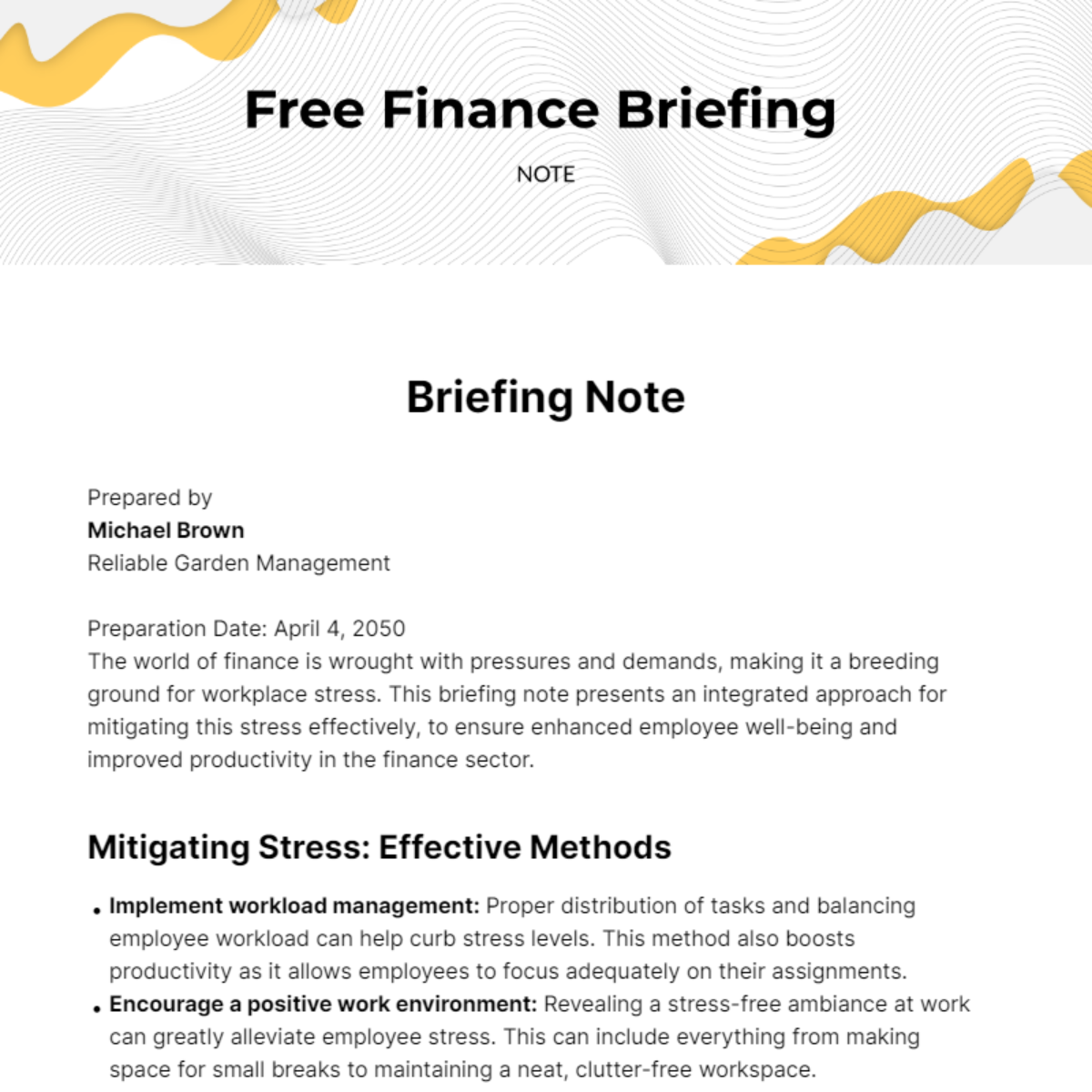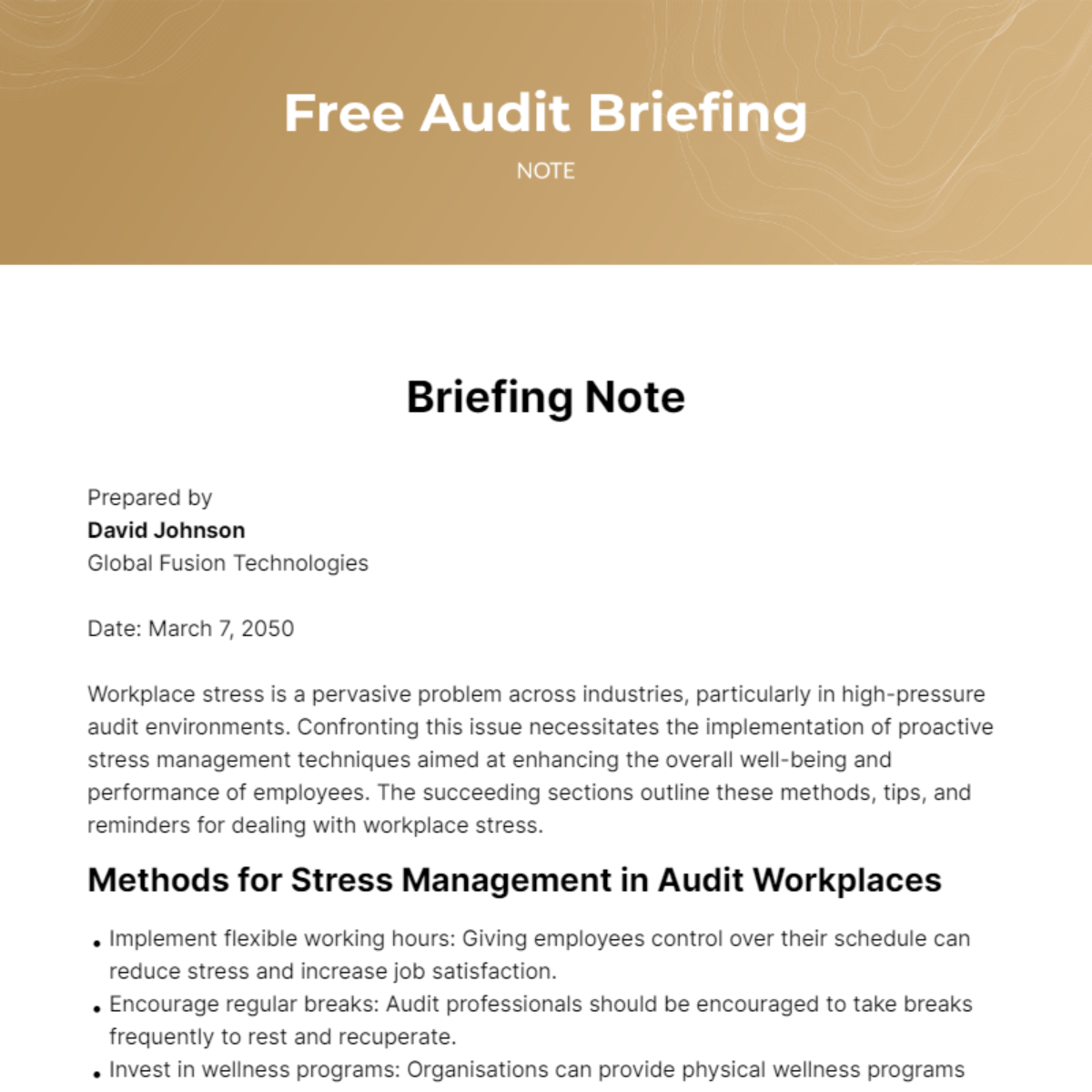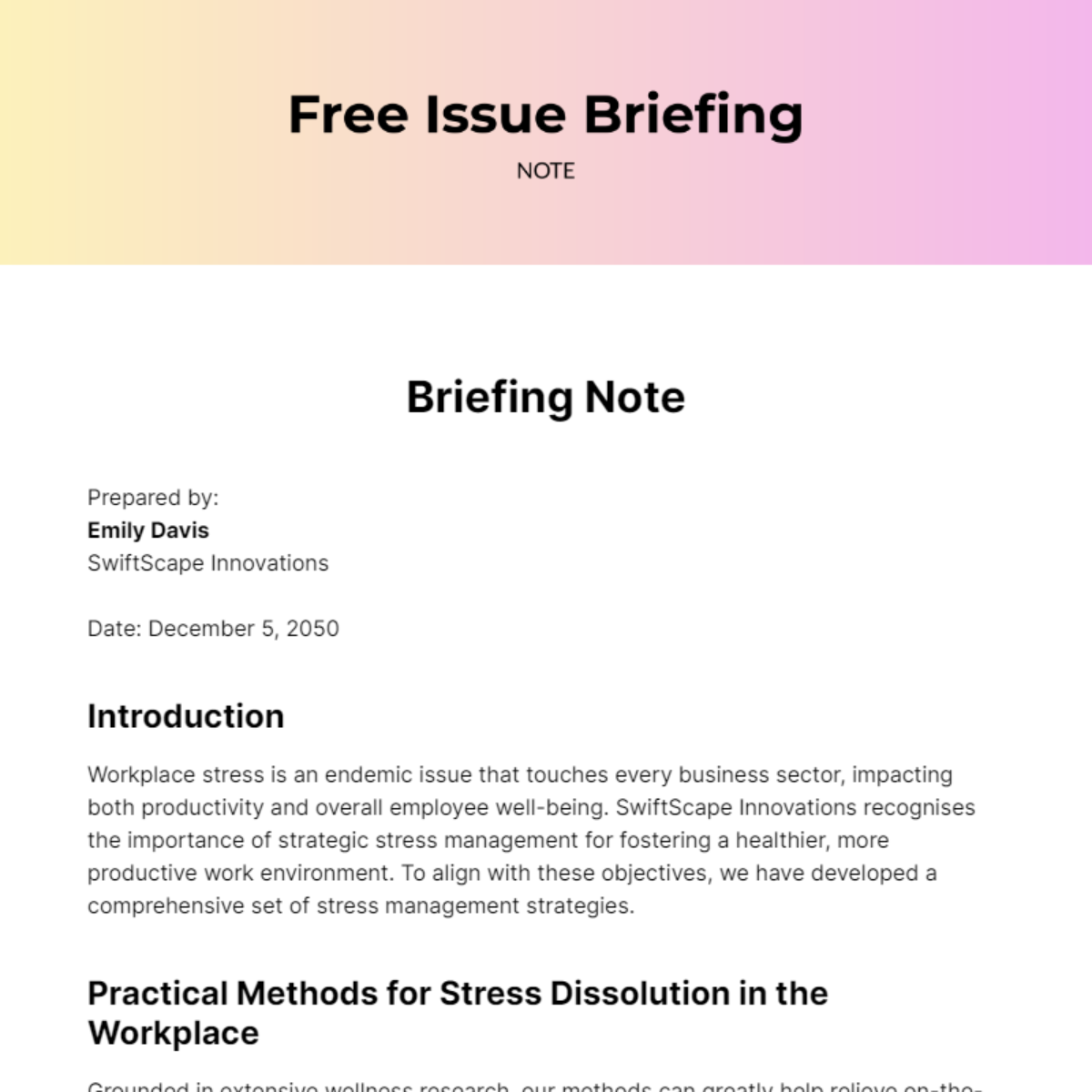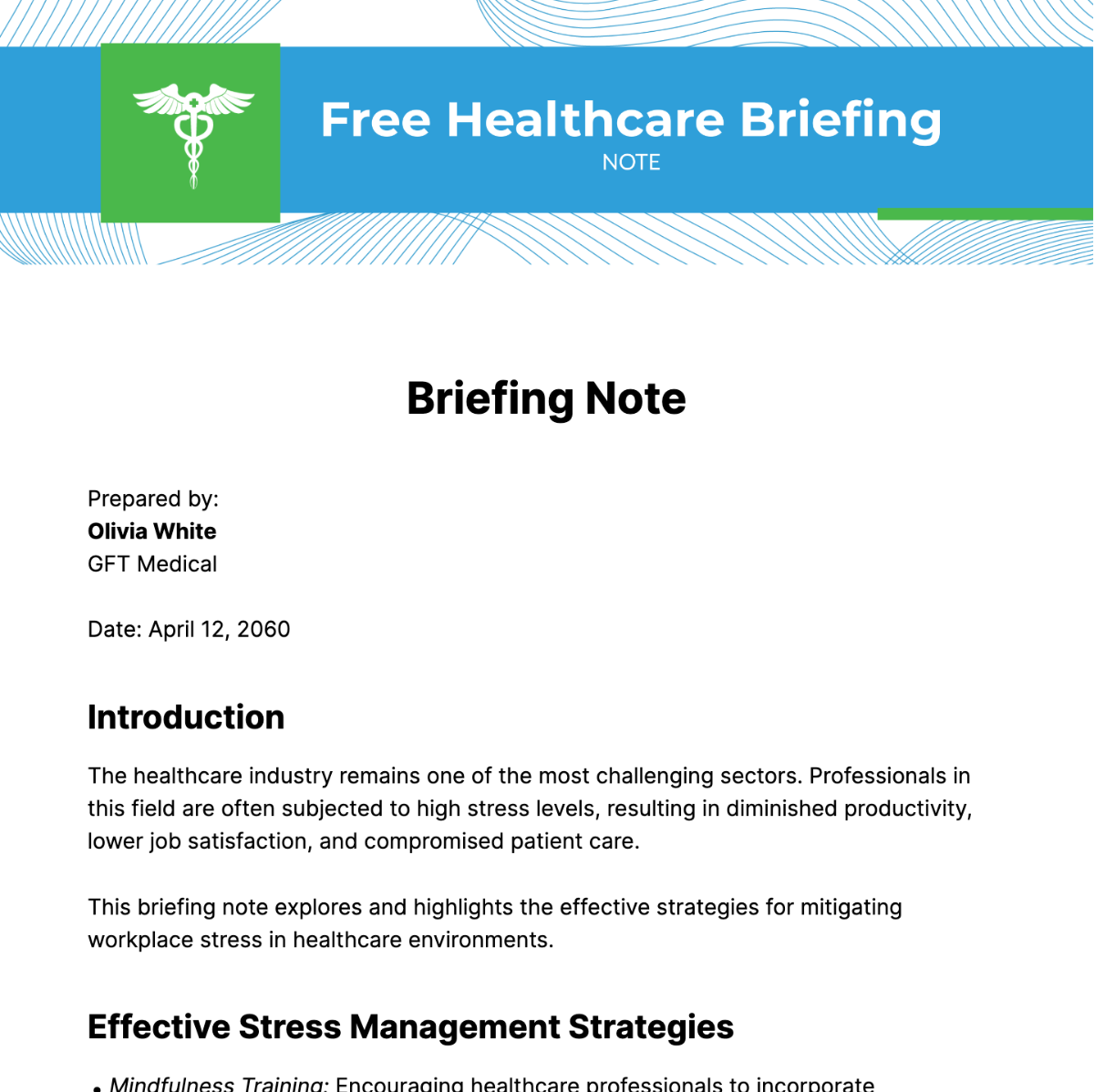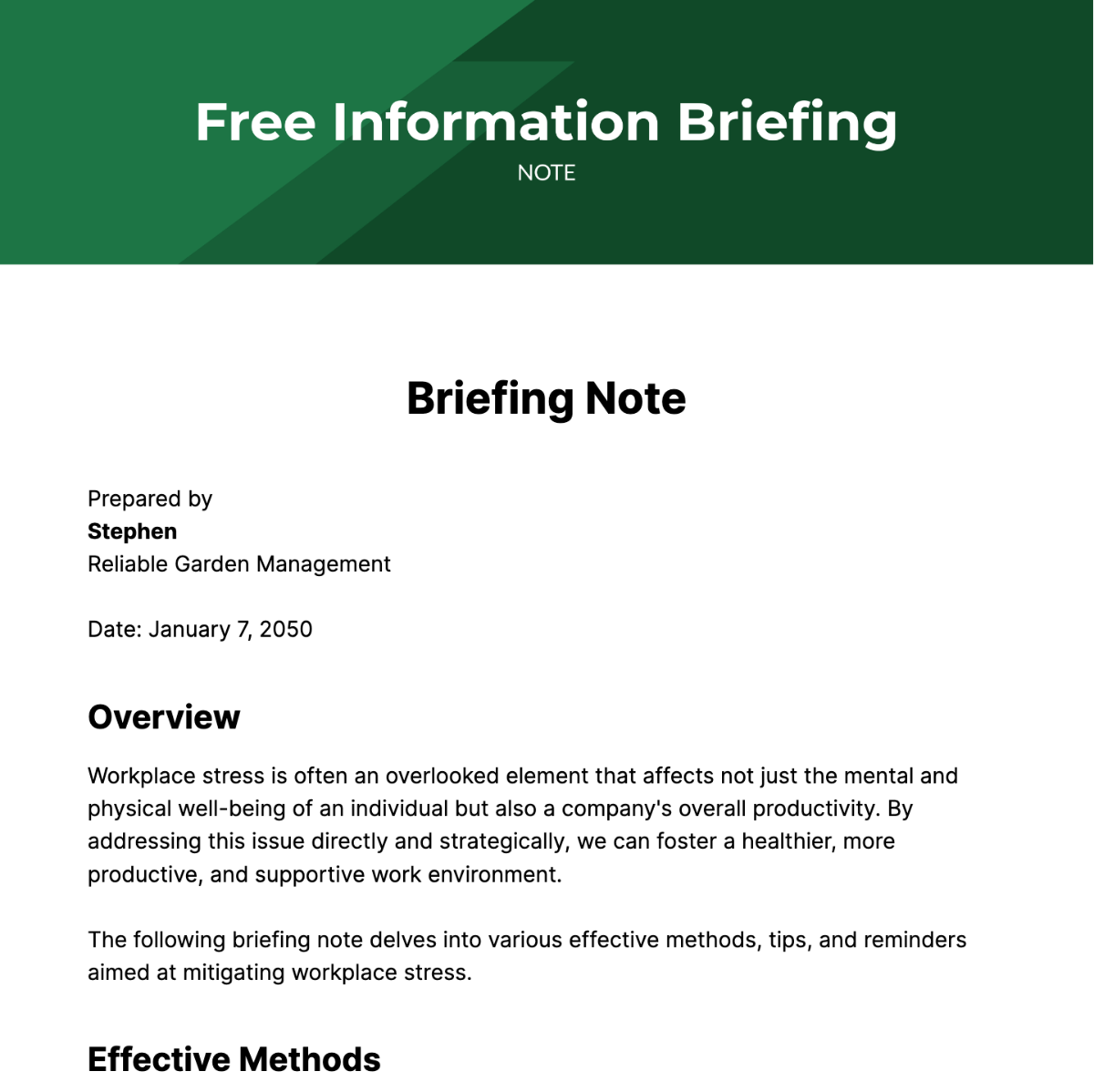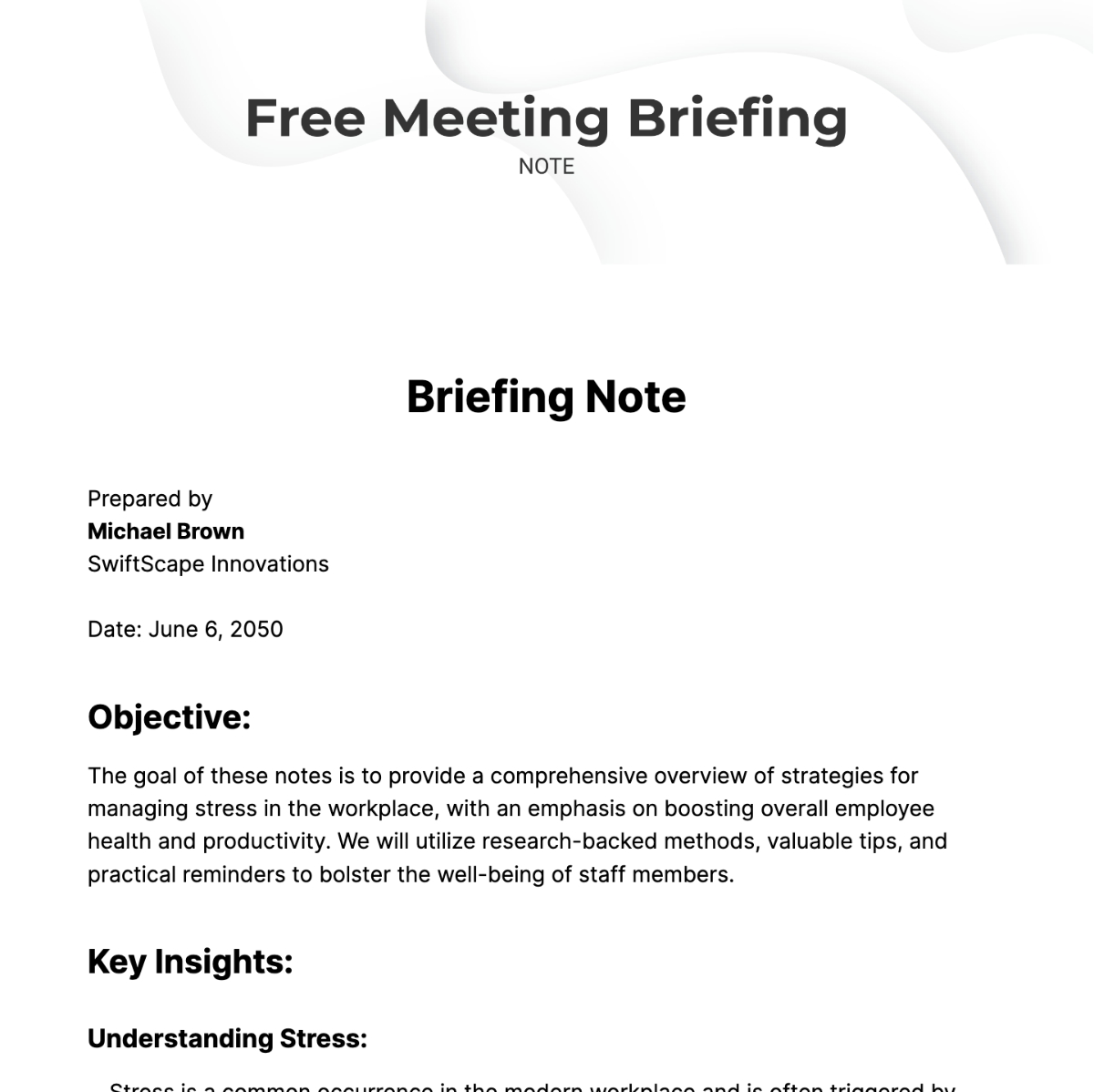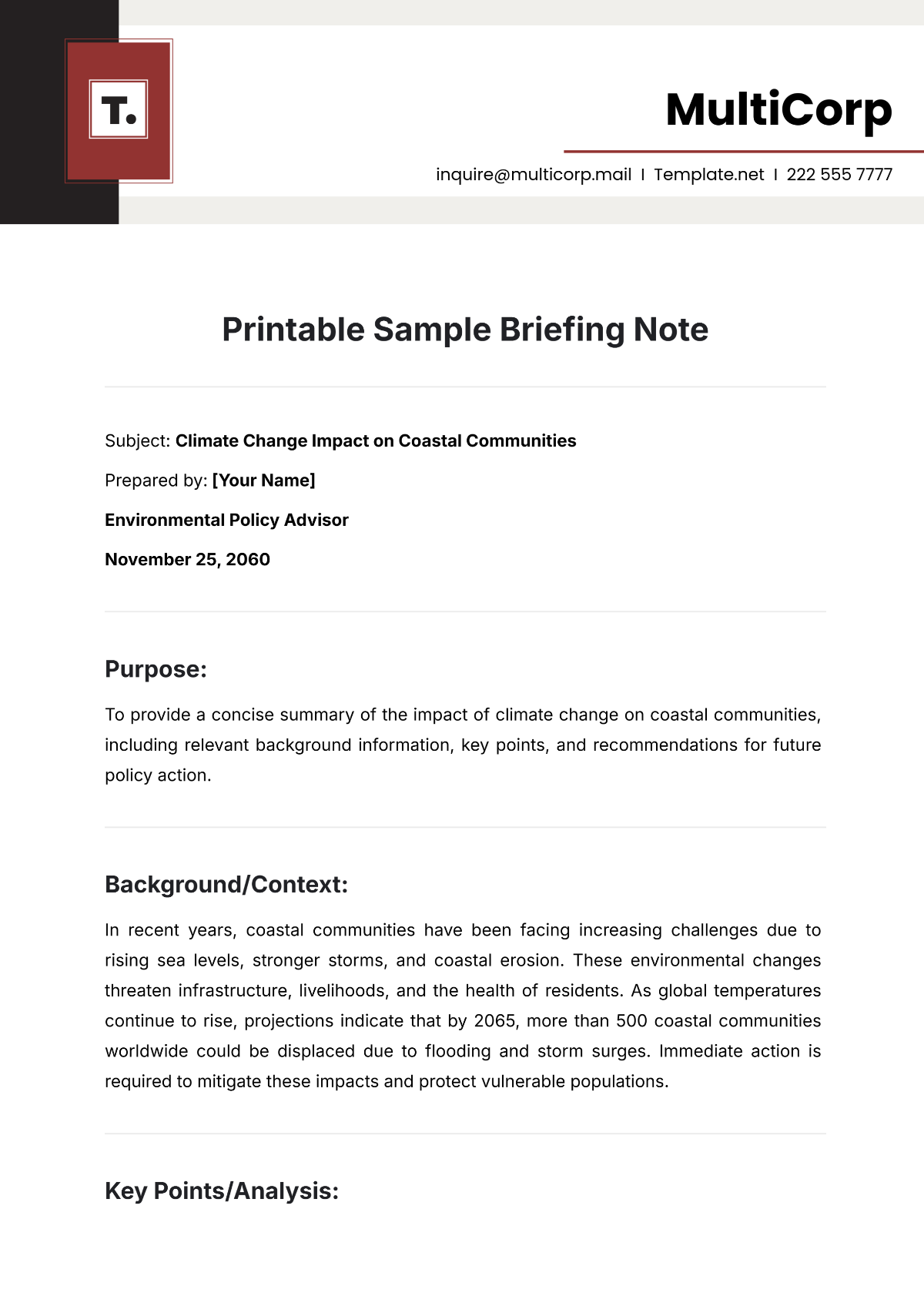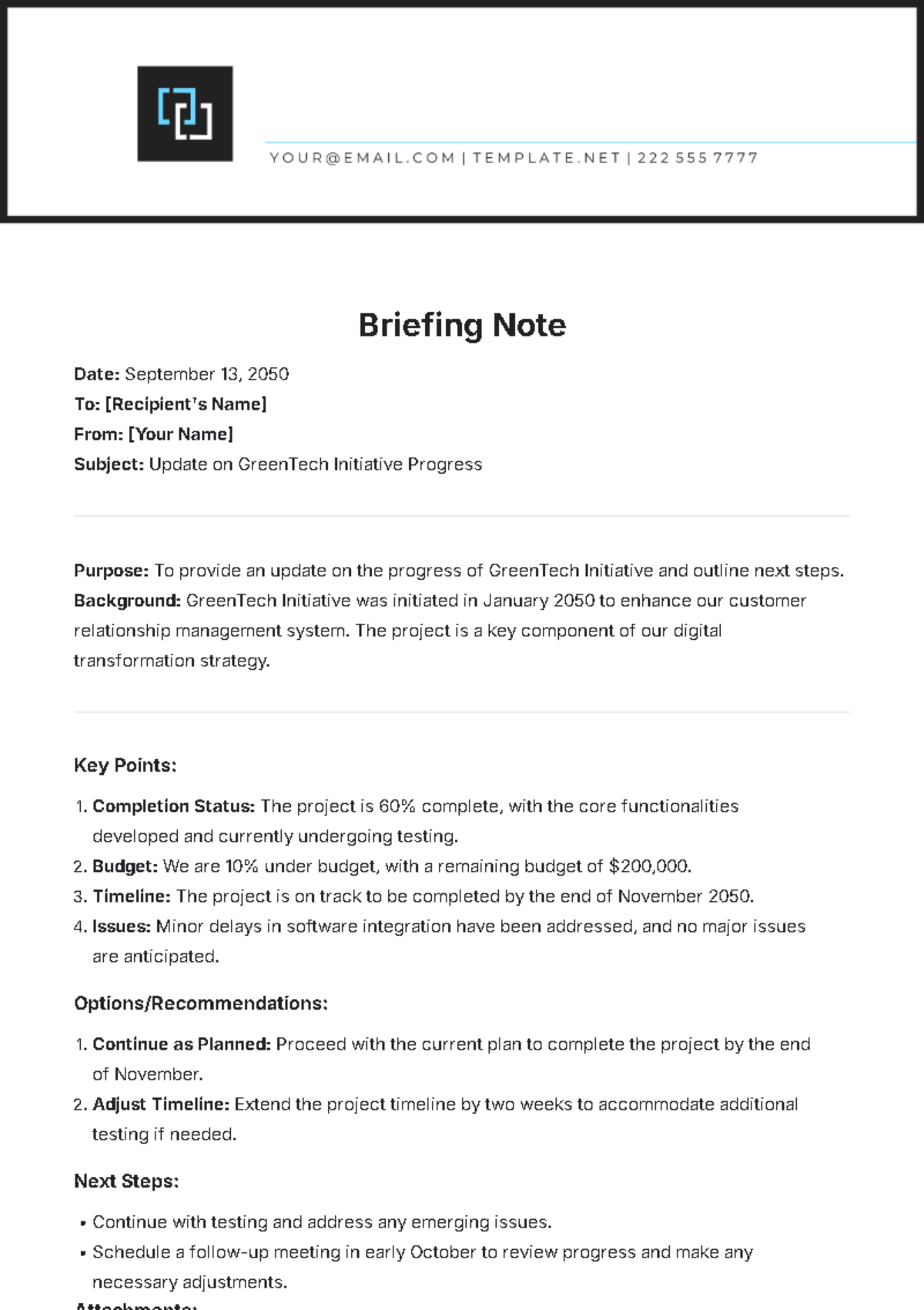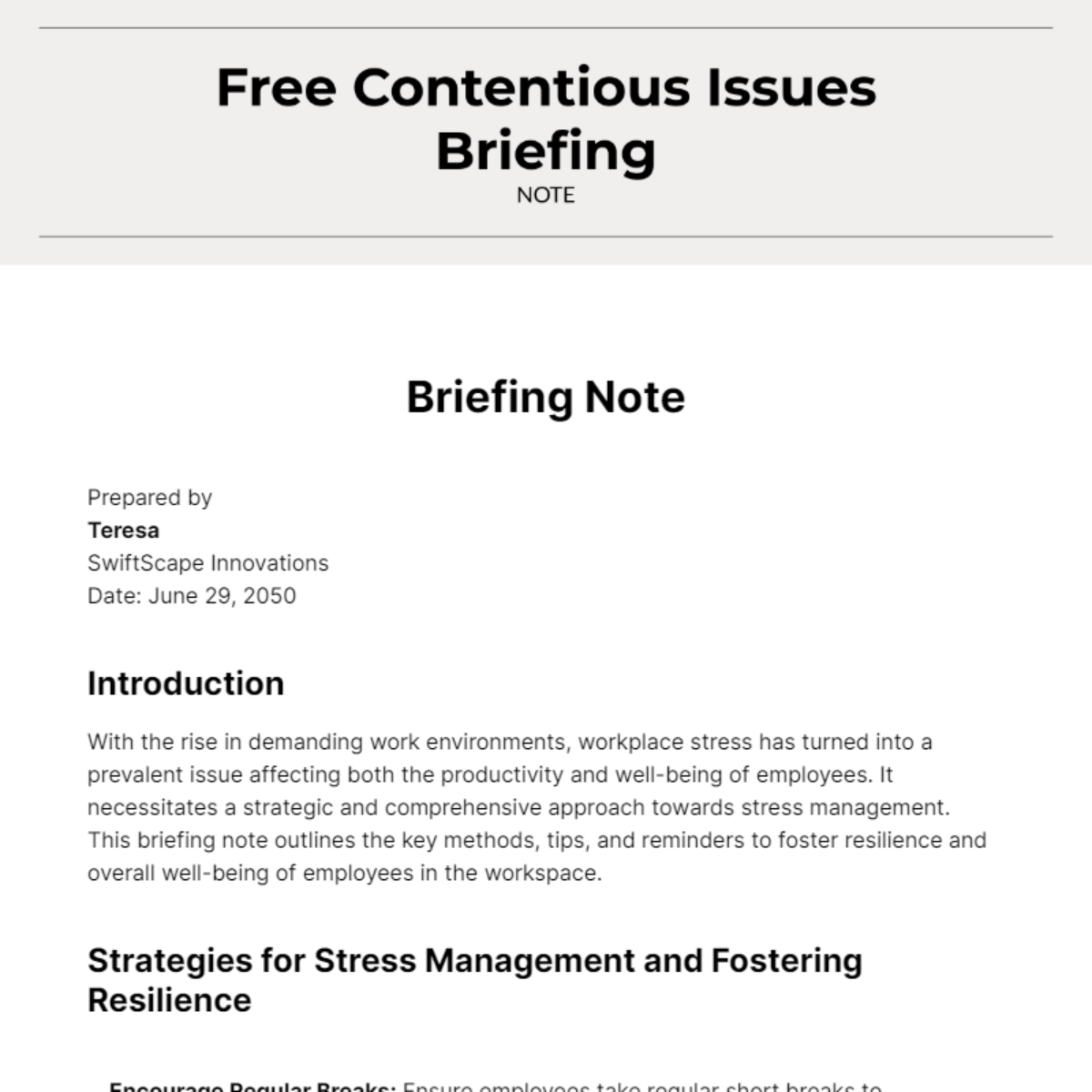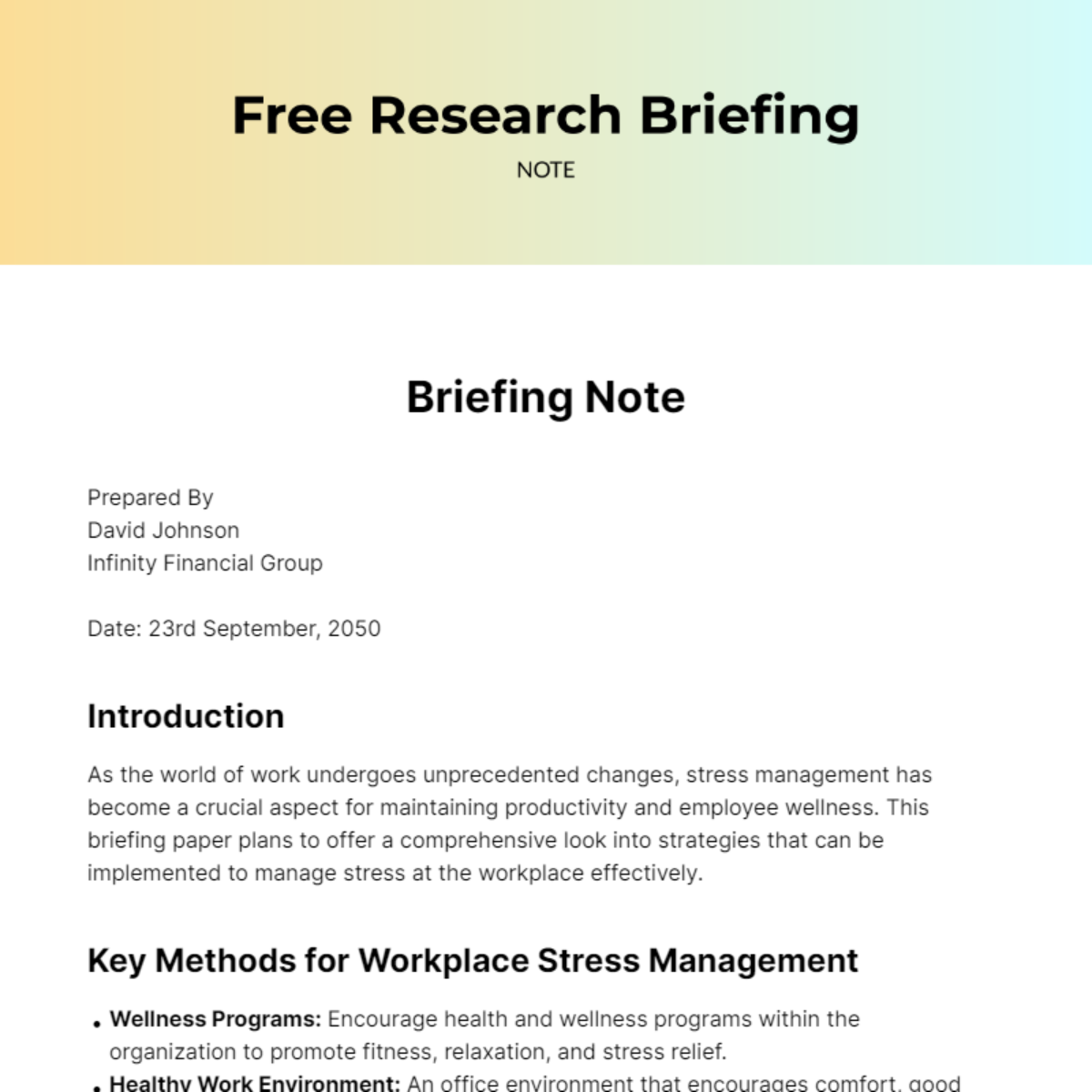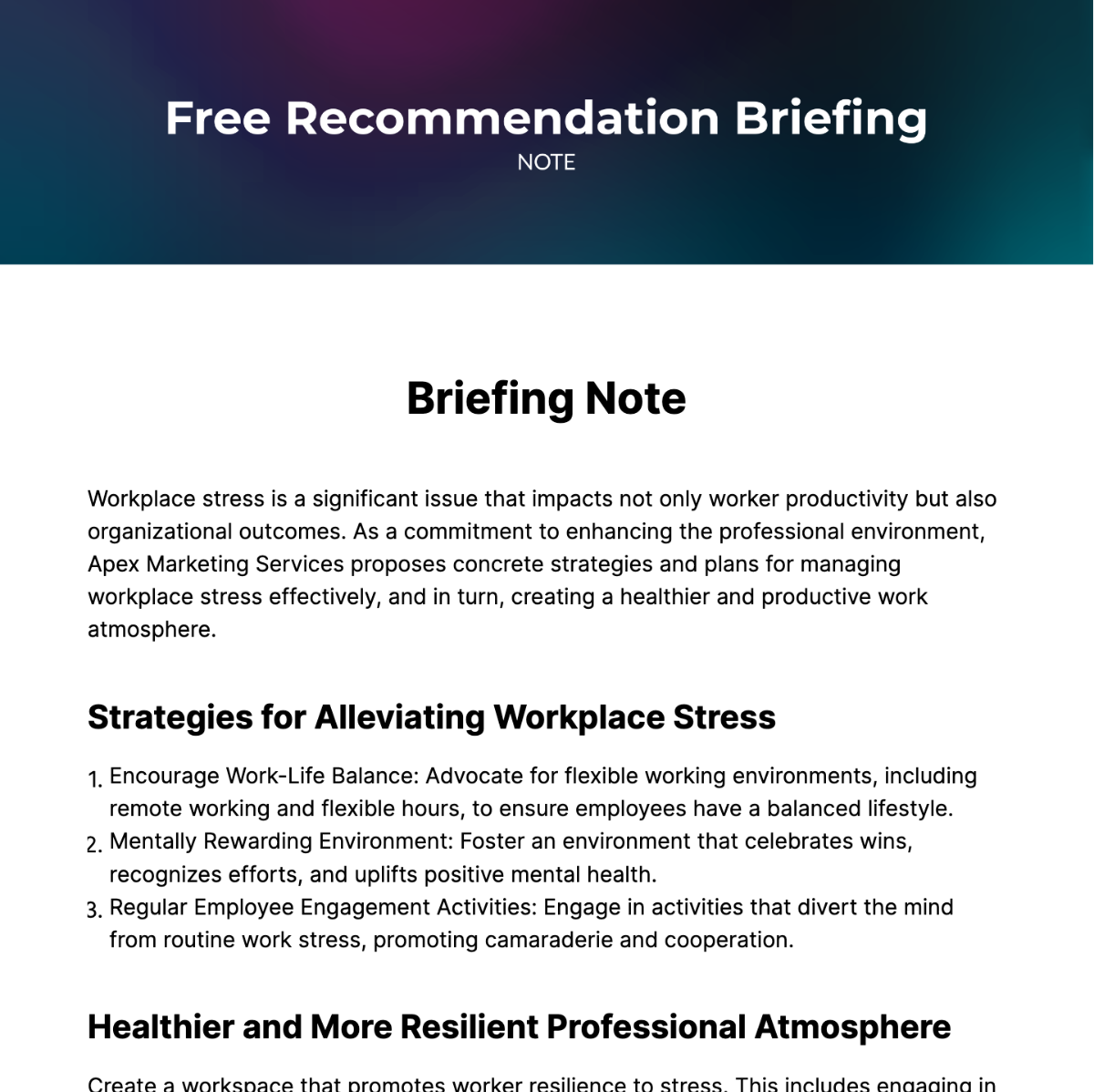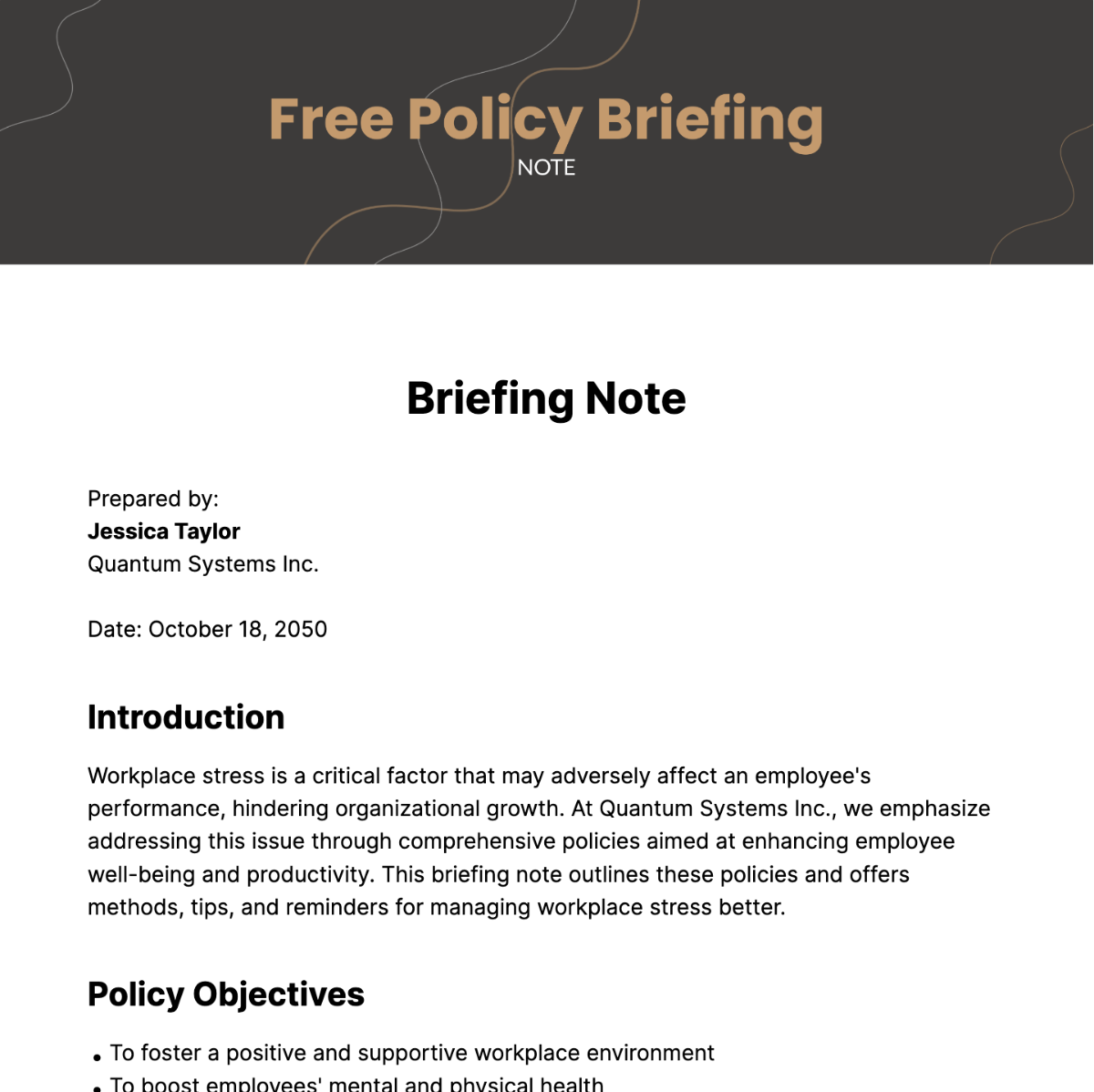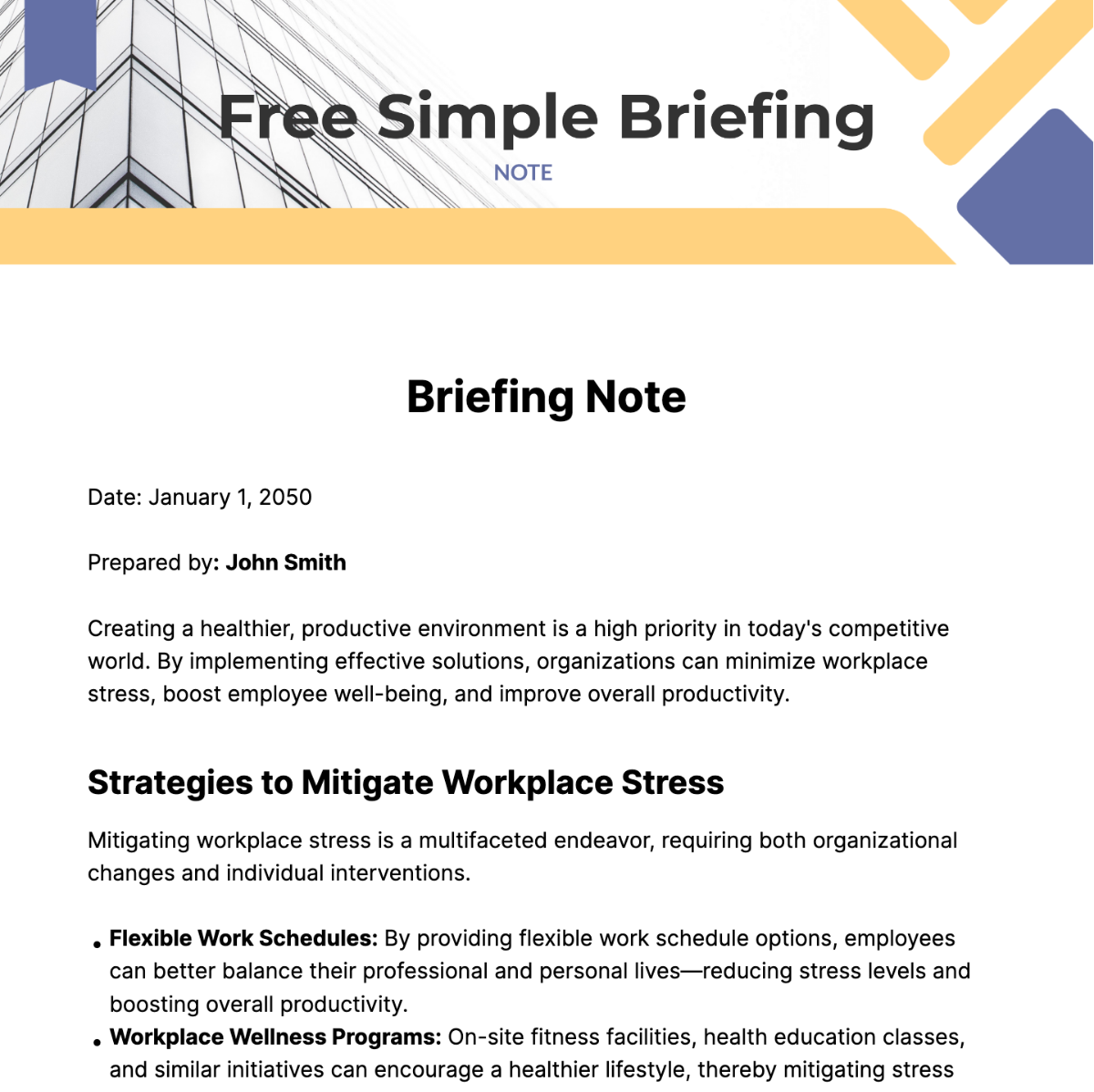Printable Sample Briefing Note
Subject: Climate Change Impact on Coastal Communities
Prepared by: [Your Name]
Environmental Policy Advisor
November 25, 2060
Purpose:
To provide a concise summary of the impact of climate change on coastal communities, including relevant background information, key points, and recommendations for future policy action.
Background/Context:
In recent years, coastal communities have been facing increasing challenges due to rising sea levels, stronger storms, and coastal erosion. These environmental changes threaten infrastructure, livelihoods, and the health of residents. As global temperatures continue to rise, projections indicate that by 2065, more than 500 coastal communities worldwide could be displaced due to flooding and storm surges. Immediate action is required to mitigate these impacts and protect vulnerable populations.
Key Points/Analysis:
Rising Sea Levels: The Intergovernmental Panel on Climate Change (IPCC) predicts that sea levels will rise by 1-2 meters by the end of the century, which could displace millions of people living in low-lying coastal areas.
Increased Storm Activity: Studies indicate that the frequency and intensity of coastal storms will increase by 30% by 2070, putting coastal infrastructure, including homes and roads, at greater risk.
Economic Impact: Coastal industries such as fishing and tourism are expected to lose billions of dollars annually due to climate change-related disruptions, including property damage and loss of marine biodiversity.
Recommendation(s):
Recommendation #1: Establish a global fund to assist coastal communities in building climate-resilient infrastructure, including flood defenses and sustainable housing.
Recommendation #2: Develop and implement policies to reduce carbon emissions globally, aiming for net-zero emissions by 2075 to slow the rate of climate change.
Recommendation #3: Initiate a global collaboration for researching new technologies to reverse or mitigate coastal erosion by 2065.
Conclusion:
The threat posed by climate change to coastal communities is a critical issue that requires urgent action. By investing in resilient infrastructure, reducing emissions, and fostering international collaboration, we can significantly reduce the impacts of climate change on these vulnerable populations. Immediate policy changes are necessary to ensure the survival and prosperity of coastal regions in the coming decades.




